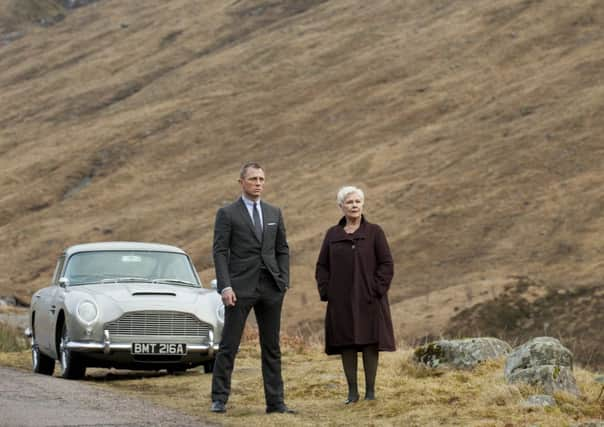Leaders: Lights, camera, action and more tourism?


This is now a high-tech, multi-billion pound global industry with the power to put countries on the map as a tourism destination arguably more effectively than our dedicated agency, VisitScotland.
In recent years, Scotland has proved an increasingly attractive location for Hollywood blockbusters, from the James Bond movie Skyfall, which featured Glencoe as a dramatic backdrop, to World War Z, in which Brad Pitt fought hundreds of zombies in Glasgow. Scotland, with its rich diversity of spectacular scenery, is a highly attractive proposition for major film-makers. Colin Firth, Nicole Kidman, Scarlett Johansson, Halle Berry and Daniel Craig are among the stars who have visited Scotland to film major features in recent years, while Sunshine on Leith and Filth were two of the UK’s biggest box office hits last year.
Advertisement
Hide AdAdvertisement
Hide AdBut we are falling short of taking full advantage of our potential. Now there are plans by the Scottish Government to kick-start the development of the country’s first major film and studio complex to help the country catch up with rivals around Europe. This would enable film-makers to undertake work on interior scenes, presenting an attractive proposition for those who may be predisposed to set a film in Scotland but who are deterred by the lack of studio facilities.
A study commissioned by Scottish Enterprise last year proposed a “foundation studio”, with some 35,000sq ft of filming space across two sound stages, and the same amount of space for workshops. The report set out the opportunity for a studio to facilitate high-end TV and medium-budget film production, supplemented by local production and commercials. This is an internationally mobile but highly competitive market, in which countries such as Ireland offer attractive tax incentives for films located there.
There are significant economic benefits, both direct and indirect, that would flow from such investment. The direct benefits span employment and skills enhancement. The indirect benefits would be felt in increased global tourism visits to areas where films were shot.
As with many such proposals, it will require considerable thought and planning to minimise the risk of being stuck with a white elephant. Several options have been put forward, including one in Pacific Quay, Glasgow, with an estimated cost of £54 million. But a more modest complex, costing around £15 million, could be up and running within three years.
Private sector partners would also be needed for such a venture. And a studio facility alone would need to be part of a larger package of tax relief incentives for film-makers. But the ideaoffers promising tangible benefits for Scotland and furtherdetailed work is surely to be encouraged.
The never-ending bonus story
HOW remarkable that the Bank of England now proposes that bankers may have to return their bonuses in the event of “misbehaviour”, big losses at their bank, or bad risk management.
It is remarkable only for this reason: how has it taken it six years to get here?
Public fury over bank bonuses has boiled since the 2008 financial crisis brought colossal losses and required huge taxpayer support. Six years on, RBS is still reporting massive losses – £8.3 billion in the latest accounts. But it is still paying bonuses – £576 million in 2013, some £237m of this to investment bankers. It also recently awarded 11 of its directors a share package worth up to £18.25m.
Advertisement
Hide AdAdvertisement
Hide AdNow the Bank proposes that bonuses may be returned up to six years after receiving them. Previously, it had suggested only that promised bonuses could be repaid. It says the new reforms are “much more stringent”.
It has long been known that the full effects of investment banking behaviour – good and ill – may not be fully felt for several years. It becomes very difficult for a bank to justify such bonus payments when, years later, they find themselves reporting large losses. It is sensible that the bonus awards system should reflect delayed effects.
One immediate problem is that bonuses may be quickly spent and hard to recoup from bankers whose family circumstances may have changed or who have moved on. The deeper flaw is the large area of dispute that would arise over subsequent events impacting on bank performance. And tough-sounding clawback does not address the underlying questions surrounding the culture and practice of bonus excess in the first place.